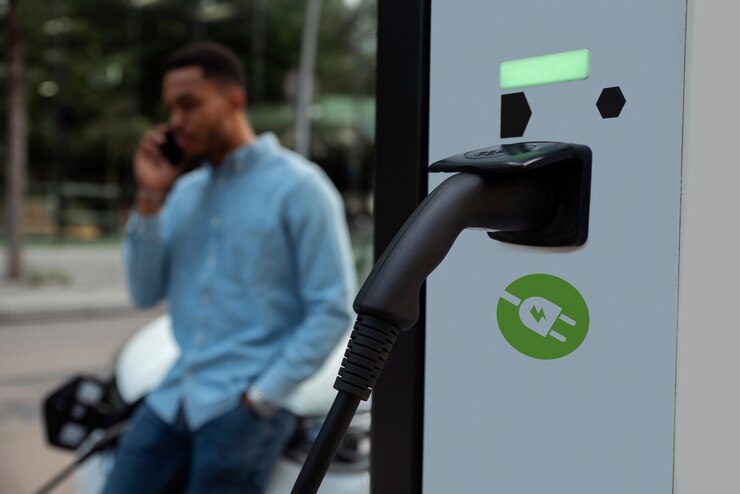As electric vehicles (EVs) revolutionize transportation, EV charging stations play a crucial role in enabling their adoption. This guide dives into everything you need to know about EV charging stations, from how they work to their future potential.
What Are EV Charging Stations?
EV charging stations are specialized units that recharge the batteries of electric vehicles. They range from basic home chargers to advanced public charging networks offering rapid recharges.
How Do EV Charging Stations Work?
EV chargers transfer electricity from the grid to your vehicle’s battery. They vary in speed and technology, with advanced options offering faster and smarter charging capabilities.
Why Are EV Charging Stations Important?
Without charging infrastructure, the EV revolution would grind to a halt. Charging stations make owning an EV practical, offering convenience and reducing range anxiety.
Types of EV Charging Stations
Understanding the types of EV chargers is essential for making informed decisions.
Level 1 Charging Stations
● Speed: Slow (adds ~3-5 miles of range per hour).
● Best for: Overnight home charging.
● Power Source: Standard 120-volt outlet.
Level 2 Charging Stations
● Speed: Faster (adds ~15-30 miles of range per hour).
● Best for: Home, workplace, and public charging.
● Power Source: 240-volt outlet.
DC Fast Chargers
● Speed: Extremely fast (80% charge in ~30 minutes).
● Best for: Long-distance travel and quick stops.
● Power Source: High-voltage DC systems.
Key Features of Modern EV Charging Stations
Today’s charging stations are more advanced than ever. Here’s what sets them apart:
Speed and Efficiency
Fast chargers reduce downtime, ensuring drivers can get back on the road quickly.
Smart Charging Technology
Smart chargers allow users to monitor charging, schedule sessions, and optimize energy use via mobile apps.
Compatibility with EV Models
Most stations support a range of EVs, but checking connector types (e.g., CCS, CHAdeMO, Tesla) is essential.
Payment Options and Accessibility
Modern stations support multiple payment methods, from apps to contactless cards, ensuring convenience for all users.
Benefits of EV Charging Stations
EV charging stations bring numerous benefits to individuals and communities.
Convenient Charging Options
With home, workplace, and public stations, EV owners have the flexibility to charge whenever and wherever they need.
Reduced Carbon Footprint
Switching to electric vehicles and charging from renewable energy sources significantly lowers greenhouse gas emissions.
Supporting the Transition to EVs
More charging stations mean more drivers can confidently make the switch to electric vehicles, accelerating sustainability efforts.
Challenges with EV Charging Infrastructure
Despite their benefits, EV charging stations face several hurdles.
Limited Availability in Some Areas
Rural and underdeveloped regions often lack sufficient charging networks, making EV ownership challenging.

Charging Speed Limitations
Even with fast chargers, recharging takes longer than refueling a gasoline car, which can be inconvenient.
Cost of Installation and Maintenance
Setting up a charging station requires significant investment, especially for high-speed public chargers.
How to Find the Best EV Charging Stations Near You
Need to locate a nearby charger? These methods can help:
Using EV Charging Apps
Apps like PlugShare, ChargePoint, and Tesla provide real-time locations, availability, and pricing details.
Leveraging Navigation Systems
Many EVs come with built-in navigation systems that highlight charging stations along your route.
Exploring Public Charging Networks
Networks like Electrify America and EVgo offer expansive coverage, ensuring you’re never far from a charger.
Setting Up an EV Charging Station at Home
Home charging is a game-changer for convenience. Here’s what to know:
Choosing the Right Charger
Select a Level 2 charger for faster charging times and smart features that suit your needs.
Installation Process and Costs
Professional installation may be required, costing $500–$2,500 depending on your home’s electrical setup.
Benefits of Home Charging
Home charging lets you wake up to a fully charged EV every morning, saving time and effort.
EV Charging Station Incentives and Grants
Governments and organizations are incentivizing EV adoption. Here’s how:
Government Subsidies
Many regions offer subsidies for installing home or public EV chargers to offset costs.
Incentives for Businesses
Businesses installing EV chargers can attract eco-conscious customers and employees while benefiting from tax breaks.
Tax Credits for EV Owners
EV buyers often qualify for tax credits covering a portion of their charging station costs.
Future of EV Charging Stations
The future of EV charging is bright, with innovations on the horizon:
Wireless Charging Technology
Wireless systems, allowing EVs to charge without plugging in, are set to make charging even more convenient.
Expansion of Charging Networks
As EV adoption grows, charging networks will expand to underserved areas, ensuring universal accessibility.
Integration with Renewable Energy
Charging stations powered by solar or wind energy will further reduce environmental impact.
FAQs About EV Charging Stations
Q1: How long does it take to charge an EV?
Charging times vary. Level 1 chargers take hours, while DC fast chargers can recharge in 30 minutes.
Q2: Are EV charging stations free to use?
Some public stations are free, while others charge per kilowatt-hour or session.
Q3: Can all EVs use the same charging station?
Most EVs are compatible with Level 2 chargers, but connector types may vary for DC fast chargers.
Q4: How much does it cost to charge an EV at a public station?
Costs range from $0.10–$0.50 per kWh, depending on the provider and location.
Q5: Do EV charging stations use renewable energy?
Some stations are powered by renewables, and this trend is expected to grow in the future.
EV charging stations are at the heart of the electric revolution, providing the infrastructure needed to make EVs a viable and sustainable option for everyone. Whether you’re planning to buy an EV or already own one, understanding charging options is key to a seamless experience.
